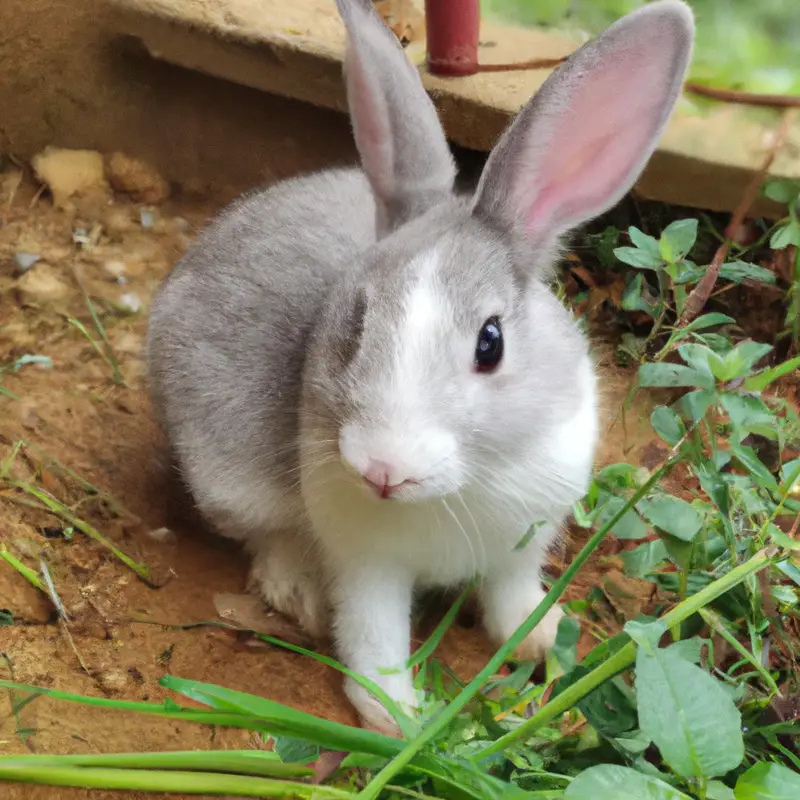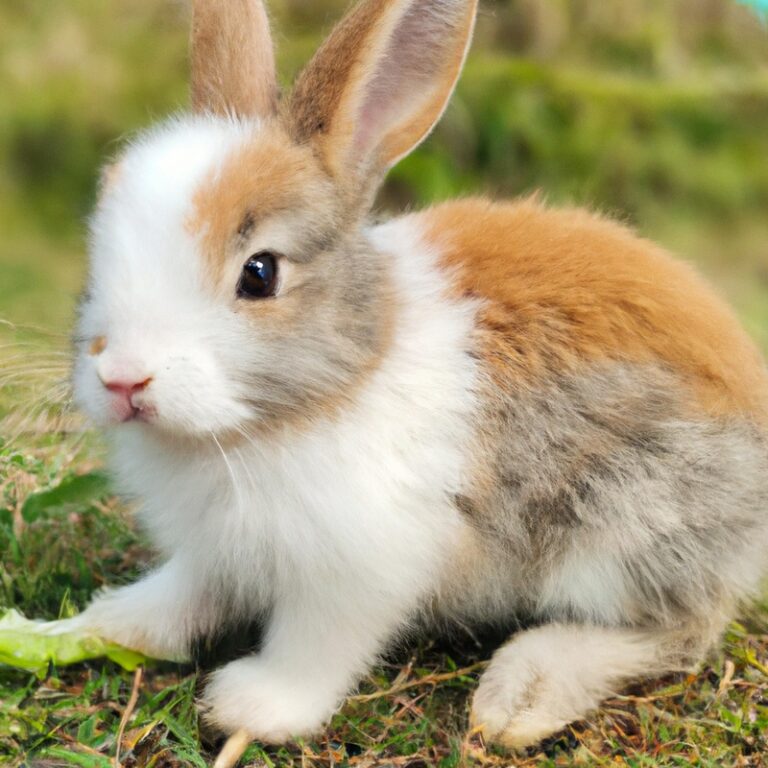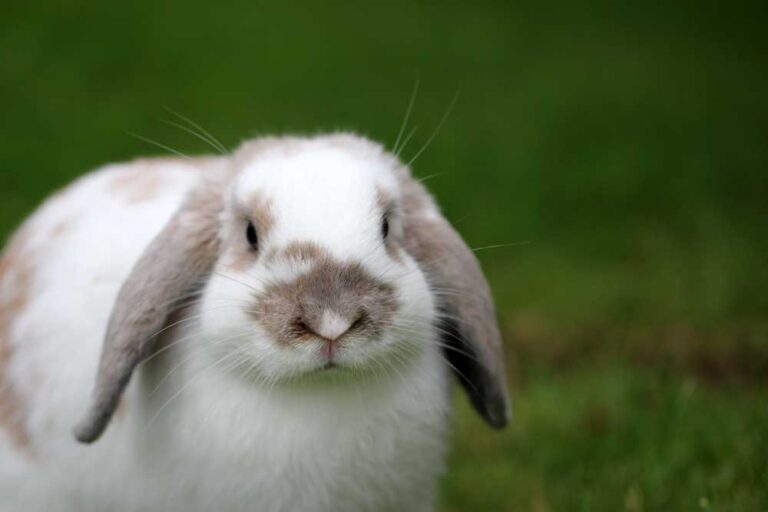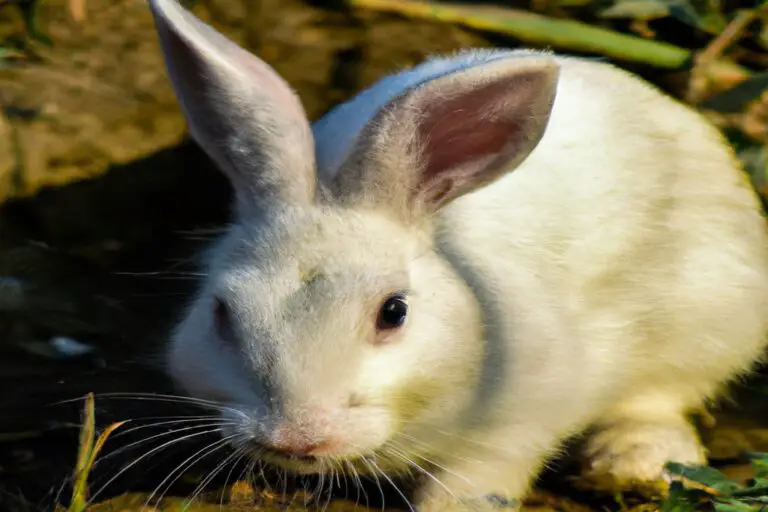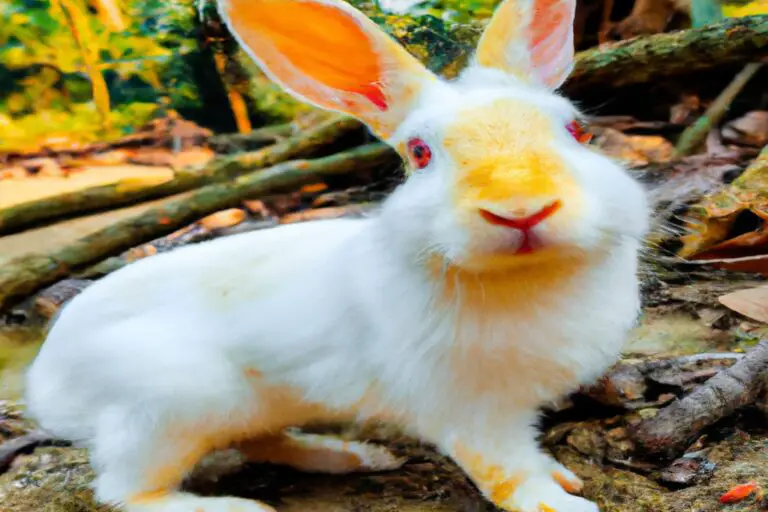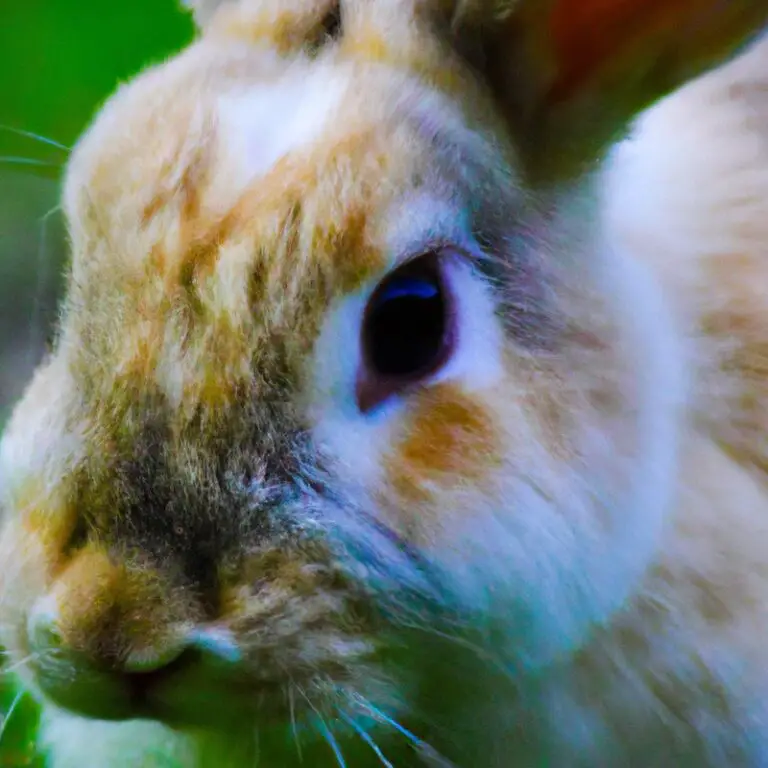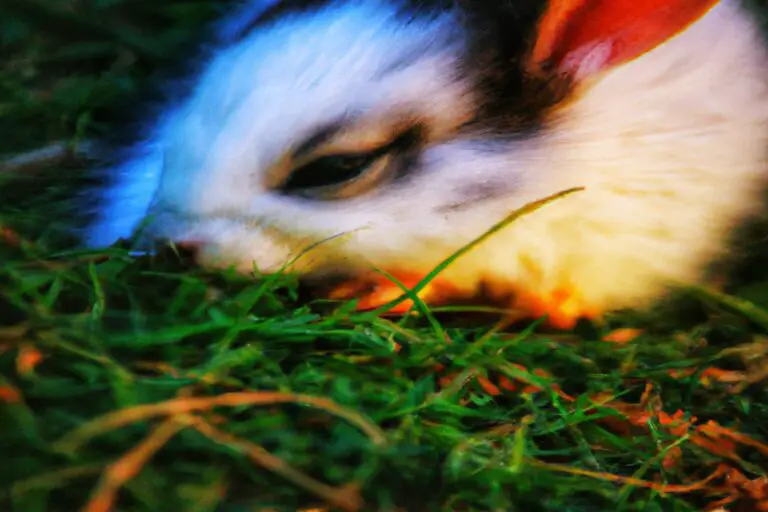How To Save a Rabbit From Dying – Essential Tips for Rabbit Lovers!
Key Takeaways:
- Immediate medical attention is crucial for saving a dying rabbit’s life.
- Providing proper nutrition and hydration can greatly improve a rabbit’s chances of survival.
- Creating a safe and stress-free environment is essential for a dying rabbit’s recovery.
- Regular veterinary check-ups are important for preventing potential health issues in rabbits.
Have you ever wondered what you would do if your beloved pet rabbit was in distress or on the verge of dying? It’s a heart-wrenching thought, but one that many rabbit owners may face.
The good news is that there are immediate measures you can take to potentially save your furry friend’s life.
In this article, we will explore how to recognize the signs of distress in a rabbit, the steps you can take to provide immediate aid, common health issues in rabbits, and how to create a safe and nurturing environment for these delicate creatures. By the end, you’ll have a comprehensive understanding of how to be a lifesaver for your beloved bunny.
| Step | Description |
|---|---|
| Gather supplies | Collect a towel, a small box, gloves, and a towel or blanket. |
| Approach the rabbit calmly | Move slowly and speak softly to avoid scaring the rabbit. |
| Assess the rabbit’s condition | Check if the rabbit is breathing, responsive, or has any visible injuries. |
| Handle the rabbit gently | Wear gloves and use a soft towel or blanket to carefully pick up the rabbit. |
| Place the rabbit in a warm, quiet space | Keep the rabbit away from loud noises and extreme temperatures. |
| Call a veterinarian or wildlife rehabilitator | Get professional advice and assistance for further guidance on care and treatment. |
| Monitor the rabbit’s condition | Observe any changes in behavior, appetite, or overall health. |
| Provide appropriate food and water | Consult an expert for guidance on feeding and hydration needs. |
| Follow professional advice | Adhere to the recommendations given by a veterinarian or wildlife rehabilitator. |
| Release or seek further assistance | Once the rabbit is stable, either release it back into the wild or reach out to experts for long-term care. |
Recognizing Signs of Distress in a Rabbit
To ensure the well-being of your rabbit, it’s important to be able to recognize signs of distress in them. Pay attention to changes in behavior, loss of appetite, respiratory distress, and other physical symptoms.
Changes in Behavior
Changes in behavior can be a clear indication that something is wrong with your rabbit. Here are some key signs to watch out for:
- Decreased or loss of appetite: If your rabbit suddenly loses interest in food or refuses to eat altogether, it could be a sign of illness or distress.
- Unusual aggression or withdrawal: Any significant changes in your rabbit’s behavior, such as increased aggression or withdrawal, may indicate pain or discomfort.
- Lack of grooming: Rabbits are known for their meticulous grooming habits. If you notice a decrease in grooming or a scruffy appearance, it could be a sign of illness or depression.
- Excessive hiding or unusual restlessness: If your rabbit starts hiding more often or seems restless and unable to settle, it may be experiencing discomfort or stress.
- Changes in litter box habits: A sudden change in your rabbit’s litter box habits, such as increased urination or diarrhea, could indicate a health issue.
Remember, every rabbit is unique, so it’s important to familiarize yourself with your pet’s usual behaviors. If you notice any significant changes, consult with a veterinarian for further evaluation and guidance.
Loss of Appetite
Loss of appetite in rabbits can be a sign of underlying health issues. If your rabbit is not eating, it is important to take action.
Possible causes of loss of appetite in rabbits include dental problems, gastrointestinal issues, pain, stress, or other medical conditions.
Monitor your rabbit closely and observe any other signs of distress or changes in behavior. Contact a veterinarian for advice and proper diagnosis.
It is crucial to address the underlying cause to ensure your rabbit’s health and well-being.
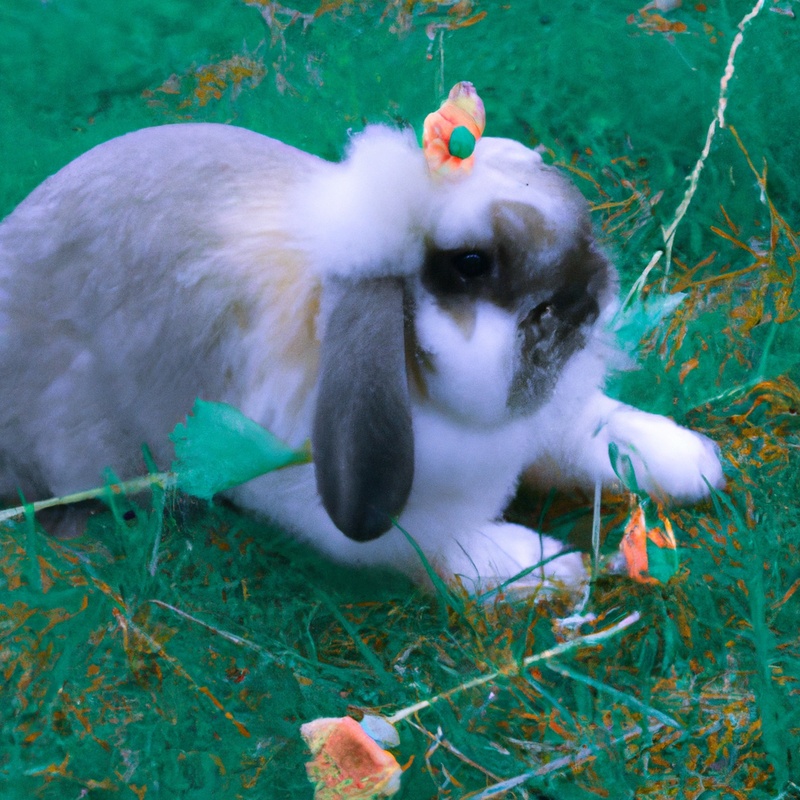
Respiratory Distress
Respiratory distress in rabbits is a serious condition that requires immediate attention. Common signs include rapid or labored breathing, wheezing, sneezing, nasal discharge, and blue-tinged lips.
If you notice any of these symptoms, it’s essential to act quickly.
Provide a calm and quiet environment, ensure proper ventilation, and monitor your rabbit closely. Seek veterinary assistance without delay, as respiratory distress can be life-threatening if left untreated.
Remember, early intervention is crucial for the well-being and survival of your furry friend.
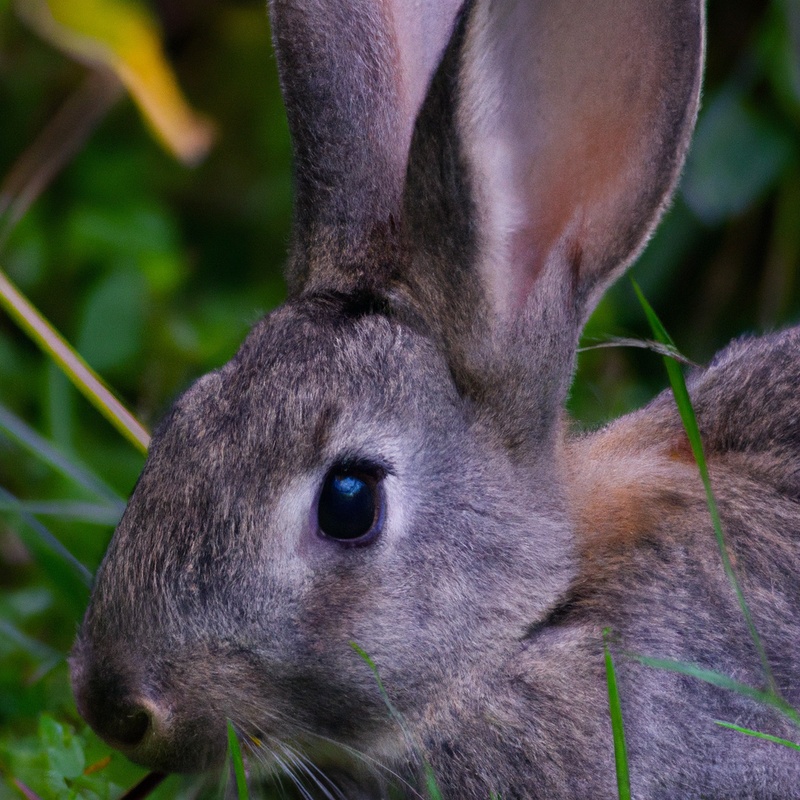
Immediate Measures to Save a Rabbit from Dying
To save a rabbit from dying, you need to take immediate action.
Contact a Veterinarian
If you notice that your rabbit is in distress or showing signs of illness, it’s important to contact a veterinarian right away.
A veterinarian who specializes in exotic animals or small mammals would be the best choice.
They will have the expertise and knowledge to diagnose and treat your rabbit’s condition.
Reach out to the veterinarian’s office and explain the situation.
They may ask you some questions to gather more information, and they will advise you on the next steps to take.
Don’t hesitate to contact a professional for help when your rabbit’s health is at stake.
Keeping the Rabbit Warm
To ensure the well-being of a rabbit and keep it warm, you can take a few simple steps.
Firstly, provide your rabbit with a cozy and insulated hutch or cage.
This will shield it from cold drafts and extreme temperatures.
Secondly, use straw or hay as bedding material to help trap heat and provide insulation.
Thirdly, place the hutch in a sheltered area away from direct sunlight and harsh winds.
Additionally, you can provide your rabbit with extra warmth by placing a heat pad or snuggle safe disk in its resting area.
Remember, rabbits are sensitive to temperature changes, so it’s crucial to monitor their environment and make adjustments accordingly.
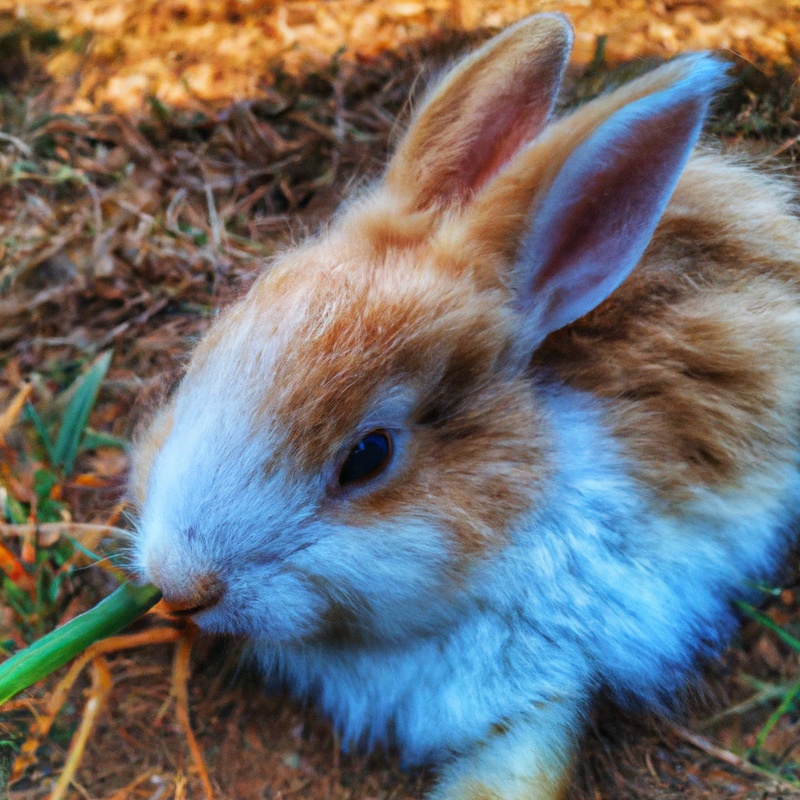
Administering First Aid
Administering first aid to a rabbit is crucial in saving its life.
The following steps can help you provide immediate care.
Firstly, if the rabbit is bleeding, apply gentle pressure with a clean cloth or bandage to control the bleeding.
Secondly, if the rabbit is unconscious, position it on its side and gently clear any obstructions from its airway.
Thirdly, if the rabbit has a broken bone, immobilize the affected area with a splint or bandage.
Lastly, seek immediate veterinary assistance to ensure proper treatment and care.
Always remember to handle the rabbit gently and avoid causing further harm.
Stopping Bleeding
To stop bleeding in a rabbit, the first step is to remain calm and composed.
Apply gentle pressure to the affected area with a clean cloth or gauze pad.
If the bleeding continues, try holding an ice pack or bag of frozen vegetables against the wound.
Avoid using excessive force or tourniquets, as they can do more harm than good.
If the bleeding doesn’t stop within 10-15 minutes, it is crucial to seek immediate veterinary assistance.
Clearing Airway Obstructions
To clear airway obstructions in a rabbit, swift action is required.
Begin by gently tilting the rabbit’s head back and using your fingers to open its mouth.
Remove any visible obstructions, such as food or foreign objects.
If the obstruction is deeper, perform the Heimlich maneuver by applying firm pressure just below the rabbit’s ribcage.
If the obstruction is still present, seek immediate veterinary assistance.
Swiftly clearing airway obstructions can be crucial in saving a rabbit’s life.
Performing CPR
Performing CPR on a rabbit can be a life-saving skill.
Here’s how you can do it:
- Check for responsiveness: Gently tap the rabbit and see if it responds. If there is no response, proceed to the next step.
- Clear the airway: Tilt the rabbit’s head back slightly and open its mouth. Remove any obstructions or fluids that may be blocking the airway.
- Start chest compressions: Place the rabbit on a firm surface and apply light pressure using your fingertips to the center of its chest. Perform compressions at a rate of 100-120 per minute.
- Give rescue breaths: Close the rabbit’s mouth and gently blow into its nose, ensuring that its chest rises with each breath. Give two rescue breaths after every 30 compressions.
- Continue cycles: Alternate between chest compressions and rescue breaths until the rabbit starts breathing on its own or professional help arrives.
Remember, it’s important to be gentle and calm throughout the process.
Addressing Common Health Issues in Rabbits
Let’s tackle some common health issues in rabbits.
Gastrointestinal Stasis
Gastrointestinal stasis is a serious and potentially life-threatening condition in rabbits. It occurs when the normal movement of food through their digestive system slows down or stops completely.
This can be caused by a variety of factors, including a diet low in fiber, dehydration, stress, and underlying health issues.
Signs of gastrointestinal stasis include decreased appetite, reduced or no stool production, lethargy, and a bloated stomach. If you suspect your rabbit has gastrointestinal stasis, it is crucial to seek veterinary care immediately.
Treatment may involve fluid therapy, pain management, and medication to get their gut moving again.
Signs and Symptoms
Signs and Symptoms:
- Changes in appetite: Watch out for a sudden decrease or increase in your rabbit’s appetite, as it could indicate an underlying health issue.
- Abnormal stool: Pay attention to any changes in the color, consistency, or smell of your rabbit’s droppings, as it may indicate digestive problems or an infection.
- Difficulty breathing: Labored breathing, wheezing, or rapid breathing can be signs of respiratory issues in rabbits.
- Lethargy: If your rabbit is unusually inactive, lacks energy, or seems less interested in its surroundings, it might be a sign of illness.
- Weight loss: Significant weight loss in a short period of time could be a red flag for various health problems, including dental or digestive issues.
- Hair loss or fur matting: Excessive shedding, patchy hair loss, or fur matting could suggest an underlying skin condition or parasites.
- Eye or nasal discharge: Discharge from the eyes or nose may indicate infection or an underlying respiratory issue in rabbits.
- Abnormal behavior: Look for any sudden changes in your rabbit’s behavior, including aggression, excessive hiding, or repetitive movements, as it may signal distress or pain.
Remember, if you notice any of these signs and symptoms in your rabbit, it’s important to consult a veterinarian who specializes in small animals. They can provide you with the necessary guidance and treatment options to help your rabbit recover.
Treatment Options
Treatment Options for common health issues in rabbits depend on the specific condition they are suffering from. Some common treatments may include:
- Medications: Prescribed medications such as antibiotics, pain relievers, or anti-inflammatory drugs may be necessary to treat infections or relieve pain in rabbits.
- Veterinary care: Seeking professional veterinary care is essential for diagnosing and treating any health issues in rabbits. It’s important to follow the veterinarian’s recommendations for treatment.
- Dietary adjustments: Making dietary adjustments, like providing a balanced diet with enough fiber, can help address digestive issues in rabbits.
- Environmental modifications: Changing the rabbit’s environment to reduce stress and improve living conditions can help with certain health issues, like respiratory problems.
- Surgery: In some cases, surgery may be required to remove tumors, spay or neuter, or treat other conditions that cannot be managed with medications alone.
Remember, it is crucial to consult a veterinarian who specializes in rabbit care to determine the most appropriate treatment options for your rabbit’s specific health issue.
Respiratory Infections
Respiratory infections are common health issues in rabbits.
Symptoms may include sneezing, coughing, wheezing, and nasal discharge.
To address respiratory infections, it’s important to seek veterinary care as soon as possible.
Your vet may prescribe antibiotics or other medications to treat the infection.
Maintaining a clean and comfortable living environment for your rabbit, avoiding smoke or other irritants, and providing a balanced diet are also essential.
Proper hygiene and reducing stress can help prevent respiratory infections in rabbits.
Signs and Symptoms
Signs and Symptoms: To identify health issues in rabbits, keep an eye out for these signs: changes in appetite or water consumption, weight loss, lethargy, abnormal droppings, sneezing or discharge from the eyes or nose, hair loss or skin problems, and abnormal behavior. Other symptoms may include dental problems, overgrown nails, and matted fur.
Regularly observing your rabbit’s behavior and appearance will help you catch any potential health issues early on and seek appropriate veterinary care.
Treatment Options
Treatment options for common health issues in rabbits include:
- Antibiotics: If your rabbit has a bacterial infection, the vet may prescribe antibiotics to kill the harmful bacteria and help your rabbit recover.
- Pain medication: Rabbits can experience pain due to various reasons like dental issues or injuries. Your vet may recommend pain medication to alleviate your rabbit’s discomfort.
- Parasite control: Parasites like mites and fleas can affect rabbits. Your vet may suggest suitable treatments or preventative measures to control these parasites.
- Dental care: Rabbits’ teeth continuously grow, and dental issues can arise. Your vet may suggest regular dental check-ups and teeth trimming to prevent dental problems.
- Proper nutrition: Diet plays a critical role in maintaining a rabbit’s health. Your vet might recommend a balanced diet consisting of hay, vegetables, and appropriate rabbit pellets to keep your rabbit healthy.
- Surgery: In some cases, surgical intervention may be required to treat certain health conditions, such as tumors or blockages. Your vet will discuss the best options if surgery is necessary.
- Environmental modifications: Sometimes, adjusting the rabbit’s living conditions, such as temperature, humidity, bedding, and overall hygiene, can help improve their health and prevent certain issues.
Remember, always consult with a qualified veterinarian before initiating any treatment for your rabbit. Their expertise and guidance are crucial in providing the best care for your furry friend.
Dental Problems
Dental problems are a common health issue in rabbits. Regular dental check-ups are essential to identify and treat any problems early on.
Signs of dental problems include difficulty eating, drooling, and weight loss.
Provide your rabbit with a diet rich in hay and avoid foods that are too high in sugar or starch. Dental toys and chew sticks can also help keep their teeth healthy by promoting natural wear.
If you notice any signs of dental problems, it’s important to consult a veterinarian who specializes in rabbit dentistry.
Signs and Symptoms
Signs and symptoms can help you identify if your rabbit is experiencing health issues. Look out for changes in appetite, water intake, or weight loss.
Notice any unusual lethargy, lack of interest in activities, or abnormal posture/gait.
Pay attention to respiratory problems, like sneezing, coughing, or nasal discharge. Observe if your rabbit is scratching excessively, has fur loss, or sores.
Keep an eye on their urine and droppings for any abnormalities.
These signs can indicate potential health problems, and it’s important to consult a veterinarian if you notice any of these symptoms in your rabbit.
Treatment Options
Treatment options for addressing common health issues in rabbits include:
- Consulting a veterinarian: It’s important to seek professional advice for accurate diagnosis and treatment plans tailored to your rabbit’s specific needs.
- Medication and treatments: Depending on the issue, your vet may prescribe medications, such as antibiotics or pain relievers, or recommend specific treatments like wound care or grooming.
- Dietary adjustments: In some cases, modifying your rabbit’s diet can help manage certain health issues. Your vet may suggest changes in food type, portion size, or feeding frequency.
- Environmental modifications: Creating a comfortable and stress-free environment can aid in the treatment of health issues. This may involve providing appropriate housing, temperature control, and minimizing exposure to potential irritants.
- Regular check-ups and preventive care: Routine veterinary visits, vaccinations, and preventative measures like parasite control are crucial for maintaining your rabbit’s health and catching any underlying issues early on.
Remember to always consult a veterinarian for proper guidance and treatment options specific to your rabbit’s condition.
Creating a Safe and Nurturing Environment for Rabbits
To create a safe and nurturing environment for your rabbit, focus on providing a proper diet and nutrition, adequate living space, and regular check-ups with a veterinarian.
Proper Diet and Nutrition
Proper diet and nutrition play a vital role in ensuring the health and well-being of your rabbit. Here are some key points to consider:
- Provide a balanced diet consisting of fresh hay, fresh vegetables, and a small amount of pellets formulated specifically for rabbits.
- Hay should be available at all times as it helps maintain dental health and provides essential fiber.
- Introduce a variety of vegetables gradually, including leafy greens like kale and romaine lettuce.
- Limit sugary treats and fruits, as rabbits are prone to digestive issues.
- Ensure a constant supply of fresh water.
- Avoid sudden changes in diet, as it can upset the digestive system.
Remember to consult with a veterinarian for personalized dietary recommendations for your rabbit.
Providing Adequate Living Space
Adequate living space is crucial for the well-being of rabbits.
They need enough room to move around, stretch their legs, and engage in natural behaviors.
A rabbit hutch should have a minimum floor space of 12 square feet for a medium-sized rabbit.
Additionally, it should be tall enough for them to stand upright.
Provide platforms and ramps for extra vertical space.
Outdoor rabbits should have access to a secure and spacious exercise area.
Regularly cleaning and maintaining the living space is important for their health and hygiene.
Remember to give your rabbits plenty of room to roam!
Regular Check-ups with a Veterinarian
Regular check-ups with a veterinarian are essential for keeping your rabbit healthy. During these appointments, the vet will be able to assess your rabbit’s overall well-being, identify any potential issues early on, and provide necessary vaccinations or treatments.
Regular check-ups can also help you address any concerns you may have about your rabbit’s behavior, diet, or living conditions.
By scheduling routine visits with a veterinarian who specializes in rabbits, you can ensure that your bunny receives proper care and attention to live a long and happy life.
Frequently Asked Questions
How can I prevent my rabbit from getting sick?
To prevent your rabbit from getting sick, it’s important to ensure a clean and safe environment.
Regularly clean their living area, provide fresh water and a balanced diet, and properly handle and store their food to prevent contamination.
Maintaining a consistent exercise routine and providing mental stimulation can also help boost their immune system.
Lastly, schedule annual check-ups with a veterinarian and keep an eye out for any changes in behavior or appetite, as early detection is key in preventing illness.
Can I save a rabbit’s life without veterinary intervention?
Yes, it is possible to save a rabbit’s life without veterinary intervention, depending on the situation.
However, it’s important to note that rabbits are delicate animals and veterinary care is highly recommended.
If you choose to provide care at home, make sure to keep the rabbit warm, hydrated, and comfortable.
Contact a rabbit rescue or wildlife rehabilitation center for guidance and consider seeking veterinary help if the situation worsens.
Always prioritize the rabbit’s well-being and consult professionals whenever possible.
How do I know if my rabbit is in pain?
How do I know if my rabbit is in pain?
It’s important to be able to recognize if your rabbit is in pain so you can take appropriate action.
Here are some signs to look out for:
- Changes in behavior: If your rabbit is acting differently than usual, such as being more withdrawn or aggressive, it could be a sign of pain.
- Decreased appetite or weight loss: A rabbit in pain may lose its appetite or have difficulty eating, which can lead to weight loss.
- Hiding or hunching: If your rabbit is spending a lot of time hiding or hunching over, it could be a sign of pain or discomfort.
- Teeth grinding: Rabbits may grind their teeth when they are in pain. Listen for any unusual grinding sounds.
- Changes in litter box habits: If your rabbit suddenly stops using the litter box or has difficulty urinating or defecating, it could be a sign of pain.
If you notice any of these signs, it’s important to consult a veterinarian who specializes in rabbits.
They will be able to assess your rabbit’s health and provide appropriate treatment if necessary.
What are the most common rabbit health issues?
Rabbits can face a few common health issues.
Here are some of the most common ones to be aware of:
- Dental Problems: Rabbit’s teeth grow continuously, which can lead to dental issues if not properly worn down. This can include overgrowth, abscesses, or tooth spurs.
- Gastrointestinal Stasis: This condition occurs when a rabbit’s digestive system slows down or stops, often due to a poor diet or lack of exercise. It can cause a decreased appetite, bloating, and even death if not addressed promptly.
- Fur Problems: Rabbits are meticulous groomers, but sometimes they can develop fur blockages or matted fur. This can lead to digestive issues or skin problems if not taken care of.
- Respiratory Infections: Rabbits are susceptible to various respiratory infections, such as snuffles. This can cause sneezing, nasal discharge, and difficulty breathing.
- Parasites: Rabbits can be affected by external parasites like fleas, mites, and ticks, as well as internal parasites like worms. Regular check-ups and preventative treatments are essential.
- Heat Stroke: Rabbits are sensitive to high temperatures and can suffer from heat stroke. Ensure they have access to shade, water, and a cool environment during hot weather.
It’s important to monitor your rabbit’s health closely and consult a veterinarian if you notice any signs of illness or discomfort.
Regular check-ups and a balanced diet can help prevent many of these issues.
Is it better to have a single rabbit or keep them in pairs?
It is generally better to keep rabbits in pairs rather than alone.
Rabbits are social animals and thrive when they have a companion.
Having a pair of rabbits allows them to groom each other, play together, and provide comfort and companionship.
It also helps prevent boredom and loneliness, which can lead to behavioral problems and health issues.
However, it’s important to introduce rabbits properly and ensure they are compatible before keeping them together.
Final Verdict
Recognizing signs of distress in a rabbit is crucial for their well-being. Immediate measures such as contacting a veterinarian, keeping the rabbit warm, and administering first aid can help save their life.
Addressing common health issues like gastrointestinal stasis, respiratory infections, and dental problems is vital to prevent serious complications.
Creating a safe and nurturing environment through proper diet, adequate living space, and regular check-ups with a veterinarian is essential for a rabbit’s overall health. By taking proactive steps and seeking professional help when needed, you can save a rabbit from dying and ensure their happiness and longevity.

